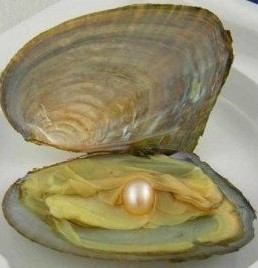Supersession about the Ruling on Menstruation and Postpartum Periods of Women
In dictionaries “naskh = نسخ” is defined as, “transcribing the information in one book to another one, and superseding something with another one”. The following verse in the Quran describes the naskh:
مَا نَنسَخْ مِنْ آيَةٍ أَوْ نُنسِهَا نَأْتِ بِخَيْرٍ مِّنْهَا أَوْ مِثْلِهَا أَلَمْ تَعْلَمْ أَنَّ اللّهَ عَلَىَ كُلِّ شَيْءٍ قَدِيرٌ
If We supersede a verse or cause it to be forgotten, we bring a better one or an equivalent one. Do you not know that God sets measures for all things? (Al-Baqarah 2:106)
According to this, naskh is replacing one verse with another. It may take place between the verses of the Quran as well as between the verses of a previous Book and the Quran. Since the Quran is the latest version of divine Books, most of its verses are the equivalent of those in previous Books. That is called “naskh by its equivalent”. God the Almighty commands:
وَمَا تَفَرَّقُوا اِلَّا مِنْ بَعْدِ مَا جَاءَهُمُ الْعِلْمُ بَغْيًا بَيْنَهُمْ وَلَوْلَا كَلِمَةٌ سَبَقَتْ مِنْ رَبِّكَ اِلٰى اَجَلٍ مُسَمًّى لَقُضِىَ بَيْنَهُمْ وَاِنَّ الَّذٖينَ اُورِثُوا الْكِتَابَ مِنْ بَعْدِهِمْ لَفٖى شَكٍّ مِنْهُ مُرٖيبٍ
They (the mushrik) separated after this science (of explaining the Quran) came to them, just because they desired to dominate one another. If it were not for your Master’s word to let people be free until a fixed term, they would be judged expeditiously. (Due to the behavior of the mushrik,) those who have been made to inherit the Book after them fall into a dilemma doubting It (the Book) (Ash-Shura 42:14).
نَزَّلَ عَلَيْكَ الْكِتَابَ بِالْحَقِّ مُصَدِّقًا لِمَا بَيْنَ يَدَيْهِ وَأَنْزَلَ التَّوْرَاةَ وَالْإِنْجِيلَ. مِنْ قَبْلُ هُدًى لِلنَّاسِ وَأَنْزَلَ الْفُرْقَانَ إِنَّ الَّذِينَ كَفَرُوا بِآَيَاتِ اللَّهِ لَهُمْ عَذَابٌ شَدِيدٌ وَاللَّهُ عَزِيزٌ ذُو انْتِقَامٍ.
He has sent down to you the Book that includes the whole truth and confirms what is before It, part by part. He has sent down the Torah and the Gospel, too; previously as guidance for the human (Al-e-Imran 3:3).
These verses express that some of the rulings in previous books were maintained in the Quran as is, and some rulings were sent down in an alleviated form. The following verse clearly proves this:
يَا أَهْلَ الْكِتَابِ قَدْ جَاءكُمْ رَسُولُنَا يُبَيِّنُ لَكُمْ كَثِيرًا مِّمَّا كُنتُمْ تُخْفُونَ مِنَ الْكِتَابِ وَيَعْفُو عَن كَثِيرٍ قَدْ جَاءكُم مِّنَ اللّهِ نُورٌ وَكِتَابٌ مُّبِينٌ
Oh, People of the Book, there has come to you Our Messenger (Book) manifesting to you much of what you were concealing of the Book, while disregarding much of it. Now has come to you light from God, as a clear Book (Al-Ma’ida 5:15).
For example, when verse Baqarah 183 was sent down, Muslims were commanded to fast like the people of the previous Books. In Baqarah 187, which was revealed after verse 183, the prohibition of intercourse has been abolished:
عَلِمَ اللّٰهُ اَنَّكُمْ كُنْتُمْ تَخْتَانُونَ اَنْفُسَكُمْ فَتَابَ عَلَيْكُمْ وَعَفَا عَنْكُمْ فَالْپٰنَ بَاشِرُوهُنَّ
God has known that you were betraying yourselves and He has accepted your turnaround (from your misdeed) and forgiven you. Now you are permitted to have intercourse with your wives (Al-Baqarah 2:187).
Most of the rulings that were set in the Torah about women during menstruation or postpartum periods were superseded, and only the prohibition of intercourse was maintained. The rulings in the Torah about women in menstruation or postpartum periods are as follows:
When a woman has her regular flow of blood, the impurity of her monthly period will last seven days, and anyone who touches her will be unclean till evening. Anything she lies on during her period will be unclean, and anything she sits on will be unclean. Anyone who touches her bed will be unclean; they must wash their clothes and bathe with water, and they will be unclean till evening. Anyone who touches anything she sits on will be unclean; they must wash their clothes and bathe with water, and they will be unclean till evening. Whether it is the bed or anything she was sitting on, when anyone touches it, they will be unclean till evening.If a man has sexual relations with her and her monthly flow touches him, he will be unclean for seven days; any bed he lies on will be unclean. When a woman has a discharge of blood for many days at a time other than her monthly period, or has a discharge that continues beyond her period, she will be unclean as long as she has the discharge, just as in the days of her period. Any bed she lies on while her discharge continues will be unclean, as is her bed during her monthly period, and anything she sits on will be unclean, as during her period. Anyone who touches them will be unclean; they must wash their clothes and bathe with water, and they will be unclean till evening. When she is cleansed from her discharge, she must count off seven days, and after that she will be ceremonially clean. On the eighth day she must take two doves or two young pigeons and bring them to the priest at the entrance to the tent of meeting. The priest is to sacrifice one for a sin offering and the other for a burnt offering. In this way he will make atonement for her before the Lord for the uncleanness of her discharge. You must keep the Israelites separate from things that make them unclean, so they will not die in their uncleanness for defiling my dwelling place,[b] which is among them. These are the regulations for a man with a discharge, for anyone made unclean by an emission of semen, for a woman in her monthly period, for a man or a woman with a discharge, and for a man who has sexual relations with a woman who is ceremonially unclean (The Torah, Leviticus 15:19-32).
Do not approach a woman to have sexual relations during the uncleanness of her monthly period (The Torah, Leviticus 18:19).
Muslims Used to Comply with the Torah
It is obligatory to believe in and comply with all divine Books. The Almighty God decrees:
قُلْ آمَنَّا بِاللّهِ وَمَا أُنزِلَ عَلَيْنَا وَمَا أُنزِلَ عَلَى إِبْرَاهِيمَ وَإِسْمَاعِيلَ وَإِسْحَقَ وَيَعْقُوبَ وَالأَسْبَاطِ وَمَا أُوتِيَ مُوسَى وَعِيسَى وَالنَّبِيُّونَ مِن رَّبِّهِمْ لاَ نُفَرِّقُ بَيْنَ أَحَدٍ مِّنْهُمْ وَنَحْنُ لَهُ مُسْلِمُونَ. وَمَن يَبْتَغِ غَيْرَ الإِسْلاَمِ دِينًا فَلَن يُقْبَلَ مِنْهُ وَهُوَ فِي الآخِرَةِ مِنَ الْخَاسِرِينَ
Say: “We have believed in God and in what was sent down to us. We have believed in what was sent down to Abraham, Ishmael, Isaac, Jacob and his descendants, and in what was given to Moses, Jesus and the prophets from their Master. We make no distinction between any of them. We have submitted to it (what is in those Books)”.
And whoever seeks a religion other than Islam, it will never be accepted of him. In the Hereafter he will be among the losers (Al-e-Imran 3:84-85).
The Almighty God mentions the names of 18 prophets (nabi), including Moses and Aaron, in verses 83-89 of Chapter al-An’am which was sent down to Meccah. He informs that He has also chosen people from their fathers, brothers and offsprings and has granted them Book and Wisdom. He decrees:
أُولَئِكَ الَّذِينَ هَدَى اللَّهُ فَبِهُدَاهُمُ اقْتَدِهِ قُلْ لَا أَسْأَلُكُمْ عَلَيْهِ أَجْرًا إِنْ هُوَ إِلَّا ذِكْرَى لِلْعَالَمِينَ
Those are they whom God has guided, so follow their guidance. Say, “I ask of you no compensation for it (the guidance); it is just a reminder for all mankind” (Al-An’am 6:90).
As required by the command in this verse, the first Muslims were responsible for complying with the Torah. They were used to seeing the behaviors of Jews towards menstruating women in Madina, and therefore asked the Messenger Muhammad (pbuh) about the ruling on women in menstruation and postpartum periods. The following verses were sent down:
وَيَسْأَلُونَكَ عَنِ الْمَحِيضِ قُلْ هُوَ أَذًى فَاعْتَزِلُواْ النِّسَاء فِي الْمَحِيضِ وَلاَ تَقْرَبُوهُنَّ حَتَّىَ يَطْهُرْنَ فَإِذَا تَطَهَّرْنَ فَأْتُوهُنَّ مِنْ حَيْثُ أَمَرَكُمُ اللّهُ إِنَّ اللّهَ يُحِبُّ التَّوَّابِينَ وَيُحِبُّ الْمُتَطَهِّرِينَ. نِسَآؤُكُمْ حَرْثٌ لَّكُمْ فَأْتُواْ حَرْثَكُمْ أَنَّى شِئْتُمْ وَقَدِّمُواْ لأَنفُسِكُمْ وَاتَّقُواْ اللّهَ وَاعْلَمُواْ أَنَّكُم ملاَُّقُوهُ وَبَشِّرِ الْمُؤْمِنِينَ
They ask you about menstruation and postpartum. Say, “It is a discomfort.” So let women alone (refrain from annoying or interfering with them during those periods), and do not approach them (for intercourse) until they are clean. When they have thoroughly cleansed themselves, then come to them from where God has ordained you (to have intercourse). Indeed, God loves those who turnaround (to the right path) and those who cleanse.
Your women are cropland for you. So go to your cropland as you please, and prepare yourselves beforehand. Be mindful of God and protect yourselves and do know that you will meet Him. Give this glad tiding (of this supersession on the matters of menstruation and postpartum) to the believers (Al-Baqarah 2:222-223).
Since all the prohibitions, except for the prohibition of intercourse, have been abolished, the verse is concluded with the expression: “Give this glad tiding (of this supersession) to the believers.”
It is narrated that Prophet Muhammad (pbuh) thereupon said:
اصنعوا كل شيء إلا النكاح
“Do everything except intercourse!” (Muslim, Menstruation,16-302; Abu Dawood, Purification, 258)
In the Torah, there is no ruling which forbids menstruating women from worshipping. Had there been any or had a new prohibition arrived, it would be clearly stated in the Quran because of the principle of supersession; but this is not the case. Therefore, based only on some narrations that are ascribed to Prophet Muhammad (pbuh), forbidding the women in menstruation or postpartum periods from praying (salat), fasting and reciting the Quran is leaving the truth aside and complying with assumptions. The Almighty God decrees:
اَفَغَيْرَ اللّٰهِ اَبْتَغٖى حَكَمًا وَهُوَ الَّذٖى اَنْزَلَ اِلَيْكُمُ الْكِتَابَ مُفَصَّلًا وَالَّذٖينَ اٰتَيْنَاهُمُ الْكِتَابَ يَعْلَمُونَ اَنَّهُ مُنَزَّلٌ مِنْ رَبِّكَ بِالْحَقِّ فَلَا تَكُونَنَّ مِنَ الْمُمْتَرٖينَ وَتَمَّتْ كَلِمَتُ رَبِّكَ صِدْقًا وَعَدْلًا لَا مُبَدِّلَ لِكَلِمَاتِهٖ وَهُوَ السَّمٖيعُ الْعَلٖيمُ وَاِنْ تُطِعْ اَكْثَرَ مَنْ فِى الْاَرْضِ يُضِلُّوكَ عَنْ سَبٖيلِ اللّٰهِ اِنْ يَتَّبِعُونَ اِلَّا الظَّنَّ وَاِنْ هُمْ اِلَّا يَخْرُصُونَ اِنَّ رَبَّكَ هُوَ اَعْلَمُ مَنْ يَضِلُّ عَنْ سَبٖيلِهٖ وَهُوَ اَعْلَمُ بِالْمُهْتَدٖينَ
Say, “Shall I seek a judge other than God?” He is the One who has sent down to you the Book explained in details. Those to whom We have granted the Book know that it is sent down from your Master showing the truth. So, do not be of the doubters. The Word of your Master has been completed, in truth and in balance. Hence, there is no one that may change His words. He listens-all, knows-all. If you follow most of those on earth, they would divert you from God’s path. They follow nothing but assumptions, and they only use conjecture. Your Master knows best who strays from His path, and He knows best the guided ones (Al-An’am 6:114-117).
Fasting of Women in Menstruation Periods
“Fast” is siyam= صِيام in Arabic. It means abstention from eating, drinking and sexual intercourse. At the end of the verse in which these are explained, the Almighty God decrees:
تلِكَْ حُدُودُ اللهَِّ فلََ تقَْرَبوُهَا
These are the bounds set by God, do not approach them (Al-Baqarah 2:187).
The Almighty God decrees:
…فَمَنْ شَهِدَ مِنْكُمُ الشَّهْرَ فَلْيَصُمْهُ …
…whoever among you witnesses that month must spend it by fasting (Al-Baqarah 2:185).
In spite of this verse, based on some narrations and claims that menstrual bleeding – which is not included in eating, drinking and intercourse – breaks the fast is merely overstepping the bounds and acting on assumptions, leaving out the truth.
Prayer (Salat) of Women in Menstruation Periods
According to Baqarah 222 menstrual and postpartum bleeding are a type of discomfort (azaa = أذََى).
The command, “do not approach them until they are clean”, forbids the intercourse.
However, the expressions “until they are clean = حَتَّىَ يَطْهُرْنَ” in verse 22, and “to make you clean= لِيُطَهِّرَكُمْ ” in the verse 5:6 below, being of the same root “tuhr = طهر”, confuses the mind. It causes a wrong assumption which supports the narrations that women are forbidden from performing prayers during their menstruation periods. The verse that commands cleanliness for prayers is the following:
يَا أَيُّهَا الَّذِينَ آَمَنُوا إِذَا قُمْتُمْ إِلَى الصَّلَاةِ فَاغْسِلُوا وُجُوهَكُمْ وَأَيْدِيَكُمْ إِلَى الْمَرَافِقِ وَامْسَحُوا بِرُءُوسِكُمْ وَأَرْجُلَكُمْ إِلَى الْكَعْبَيْنِ وَإِنْ كُنْتُمْ جُنُبًا فَاطَّهَّرُوا وَإِنْ كُنْتُمْ مَرْضَى أَوْ عَلَى سَفَرٍ أَوْ جَاءَ أَحَدٌ مِنْكُمْ مِنَ الْغَائِطِ أَوْ لَامَسْتُمُ النِّسَاءَ فَلَمْ تَجِدُوا مَاءً فَتَيَمَّمُوا صَعِيدًا طَيِّبًا فَامْسَحُوا بِوُجُوهِكُمْ وَأَيْدِيكُمْ مِنْهُ مَا يُرِيدُ اللَّهُ لِيَجْعَلَ عَلَيْكُمْ مِنْ حَرَجٍ وَلَكِنْ يُرِيدُ لِيُطَهِّرَكُمْ وَلِيُتِمَّ نِعْمَتَهُ عَلَيْكُمْ لَعَلَّكُمْ تَشْكُرُونَ
Oh, you who believe! When you rise to perform the prayer, wash your face and your arms to the elbows, and (with your wet hands) touch over your head and your feet to the ankles. If you are in a state of janabah, then purify yourselves. If you are ill, on a journey, have come from the place of relieving oneself, or have contacted women, and you do not find water, recourse to clean earth (instead of water and wipe your hands on it) and (with your hands) touch your face and arms. God does not desire to cause you any difficulty, but He wishes to purify you and complete His blessing upon you, so that you may fulfill your duties. (Al-Ma’ida 5:6).
The organs that are commanded to be cleaned during ablution are the arms, face, head and feet. What is subject to major ablution (ghusl) is the whole body, and the organs subject to dry ablution are the face and hands. Ablution is broken by the filth of urination or defecation. The filth caused by menstrual bleeding may, at most, be likened to the filth caused by feces. In the verse above and in the related hadiths, there is not a command or a recommendation to remove the urine, feces, or reproductive liquids. Then, we cannot interrelate the expression: “He wishes to purify you = لِيُطَهِّرَكُمْ” with the expression about menstruating women: “until they are clean = حَتَّىَ يطَهْرُْنَ”, in order to make a decision about the state of the menstruant.
Menstrual blood is different than urine, feces or semen because it is not possible to avoid. Since nobody is burdened with a duty beyond their capability, menstrual bleeding does not obstruct the prayer (salat) and does not break the ablution.
Reading or Reciting the Quran During Menstruation Period
According to Chapter Ma’idah verse 6; ablution (wudu), major ablution (ghusl) and dry ablution (tayammum) are pre-requisites only for offering the prayer (salat). There is not a single command which forbids people without ablution, major ablution or those in the menstruation period from reading or reciting the Quran. However, the following verse is alleged to be proof of the prohibition to touch the Quran in mentioned cases:
فَلَا اُقْسِمُ بِمَوَاقِعِ النُّجُومِ. وَاِنَّهُ لَقَسَمٌ لَوْ تَعْلَمُونَ عَظٖيمٌ. اِنَّهُ لَقُرْاٰنٌ كَرٖيمٌ. فٖى كِتَابٍ مَكْنُونٍ.لَا يَمَسُّهُ اِلَّا الْمُطَهَّرُونَ. تَنْزٖيلٌ مِنْ رَبِّ الْعَالَمٖينَ
Nay! I swear by the location of the stars. And if you could know it, it is a great oath indeed. It (that which is in the location of the stars) is a glorious Quran. It (that Quran) is in a “maknun” Book. No one touches It (the maknun Book) except the purified. It has been sent down by the Master of all beings (Al-Waqiah 56:75-80).
The stars are located in “Mala al-alaa” (as-Saffat 37:6-10). The Book that resides there is protected in a plate called “Lawh al-mahfoodh” (al-Buruj 85:21-22).
The word “maknun” is of the root “kinn = كن”, and means “protected in a covering”. Then the related part of the verse reads:
“It (that Quran) is in a Book protected in a covering. No one touches that Book (protected in its covering) except the purified.”
The verse that explains this protective covering is in the very same chapter:
كَاَمْثَالِ اللُّؤْلُؤِ الْمَكْنُونِ
They are like “maknun” pearls (protected in their coverings) (Al-Waqiah 56:23).
What are like protected pearls in coverings are the servants in the Gardens. The covering that protects a pearl is called “mother-of-pearl”.
One of the pictures below shows a group of closed oysters, and the other one shows an open oyster with the mother-of-pearl inside:


It is impossible to touch a pearl while it is inside the encasement of its mother-of-pearl, and the Quran we have in hand today is obviously not in an encasement similar to this. The protected Quran is the Quran in Lawh-al-Mahfoodh in the first layer of the heavens. It cannot be subjected to human contact because it is already far from the reach of human beings. The “purified” ones who were mentioned as exceptions can only be angels. Therefore, the verses mentioned above are not relevant to the Quran we have in hand today. So, it cannot be suggested based on these verses that a person in need of ablution or ghusl, or in the menstruation period, is not allowed to touch the Quran. Narrations that are presented as evidence on this issue are rather weak. Therefore, assumptions must not be followed instead of the truth.







Salams
I need the verse or sahe ahadith to clarify that women while fasting during ramadan gets their periods, do the have to make up those days they missed or no need to.
A women argued some sheikh told her no need to make up as they miss prayer as well and they don’t make up for prayers.
Alaikum as-salam,
Please read:
https://www.islamandquran.org/common-mistakes/fasting-of-women-on-period.html
Kind Regards